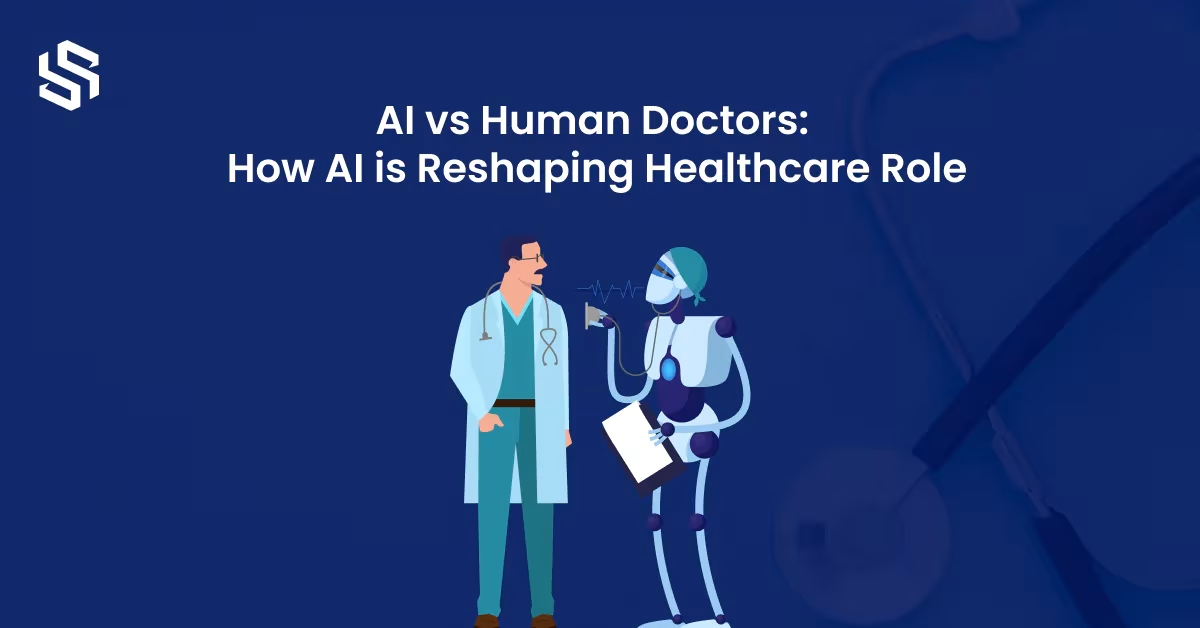The healthcare landscape is undergoing an unprecedented transformation, with Artificial Intelligence (AI) acting as the primary catalyst. As we navigate 2025, AI is not just a buzzword; it’s a tangible force, bringing about revolutionary changes in diagnostics, personalized care, drug discovery, and operational efficiency. The vision of a smarter, more accessible, and profoundly human-centered healthcare system is rapidly becoming a reality.
Beyond the Hype: Tangible Advancements in 2025
The past year has seen AI solidify its position as an indispensable tool in healthcare, moving from experimental stages to widespread adoption. Here’s a look at some of the most impactful advancements we’re witnessing:
- Generative AI for Clinical Documentation: One of the most significant pain points for healthcare professionals has been the sheer volume of administrative tasks. Generative AI is now stepping in, transforming clinical coding and documentation. Imagine AI analyzing physician notes, discharge summaries, and patient interactions to automatically generate accurate medical codes, draft post-operative reports, and even summarize complex medical histories. This frees up countless hours, allowing doctors to focus on what truly matters: patient care. Early reports show doctors spending significantly less time on paperwork and making more accurate decisions, a testament to AI’s power to streamline operations.
- Hyper-Personalized Treatment with “Digital Twins”: The era of one-size-fits-all medicine is fading. AI is pushing the boundaries of personalized treatment. By analyzing a patient’s entire digital footprint – from genetic data and lifestyle choices to real-time wearable data – AI can help create highly individualized treatment plans. The concept of “digital twins,” where a virtual replica of a patient is used to simulate responses to different treatments, is moving closer to clinical application, promising therapies tailored to maximize effectiveness and minimize side effects.
- Accelerated Drug Discovery and Repurposing: The journey from molecule to medicine is notoriously long and costly. AI is dramatically speeding up this process. Through advanced machine learning, AI can rapidly identify promising drug candidates, predict their efficacy, and even uncover new uses for existing drugs. This is leading to faster breakthroughs in treating complex diseases like Parkinson’s and Alzheimer’s, significantly reducing research costs and accelerating the delivery of life-saving medications.
- Proactive Disease Prediction and Prevention: AI’s ability to analyze vast datasets allows for unprecedented predictive power in public health. By identifying patterns and trends from diverse data sources, AI can forecast disease outbreaks, flag individuals at high risk for certain conditions (e.g., sepsis, sudden cardiac death), and enable timely, targeted interventions. This shift towards preventive care is crucial for mitigating the spread of diseases and reducing the overall burden on healthcare systems.
- Agentic AI for Medical Assistance: We’re seeing the emergence of “agentic AI” – systems that can act autonomously and make informed decisions without constant human intervention. While full autonomy is still evolving, these agents are already supporting healthcare professionals by analyzing patient data, medical images, and test results to speed up diagnoses and catch conditions that might be missed by human clinicians. They act as tireless, continuously learning medical assistants, available 24/7.
The Ethical Compass: Guiding AI’s Journey
As AI becomes more deeply embedded in healthcare, the ethical considerations become even more pronounced. Recent developments highlight the ongoing efforts to navigate these complexities:
- Prioritizing Data Privacy and Security: The immense volume of sensitive patient data used by AI systems necessitates robust safeguards. Discussions around secure data sharing frameworks that enable innovation while simultaneously protecting patient privacy are at the forefront. The potential for re-identification of pseudo-anonymized data remains a key challenge, pushing for stronger encryption and access controls.
- Mitigating Algorithmic Bias: A critical ethical imperative is to ensure fairness and prevent AI systems from perpetuating or exacerbating existing health disparities. This involves actively working to train AI models on diverse and representative datasets, and continuously monitoring for biases in their outputs. Regulatory bodies are increasingly emphasizing the need for equitable AI development.
- Ensuring Transparency and Accountability: The “black box” problem, where AI’s decision-making process is opaque, is being addressed through efforts to create more explainable AI models. Clear frameworks for accountability are being developed, outlining who is responsible when an AI makes an error – be it the developer, the healthcare provider, or the institution. This is vital for building trust and ensuring patient safety.
- Informed Consent and Human Oversight: As AI’s role expands, the importance of clear and comprehensive informed consent for patients regarding AI’s involvement in their care is paramount. Crucially, AI is designed to be a powerful assistant, not a replacement for human clinicians. Medical professionals must retain ultimate decision-making authority, with AI serving as a tool to augment their capabilities.
A Future Built on Collaboration
The journey of AI in healthcare is a testament to the power of collaboration. It requires ongoing dialogue and partnership between AI developers, medical professionals, policymakers, and patients themselves. The coming years will see:
- Further refinement of AI’s predictive capabilities, leading to even more precise risk assessments and personalized preventive strategies.
- The widespread adoption of surgical robots with enhanced AI capabilities, offering greater precision and minimal invasiveness.
- AI-powered virtual mental health support, providing accessible and judgment-free assistance.
- A global push for standardized regulatory frameworks to ensure the ethical and safe deployment of AI across diverse healthcare settings.
AI is not just changing healthcare; it’s elevating it. By taking on complex data analysis, automating tedious tasks, and offering insights beyond human capacity, AI is freeing up healthcare professionals to do what they do best: provide compassionate, human-centered care. The pulse of progress is strong, and with ethical considerations at its heart, AI promises to lead us to a healthier tomorrow.


